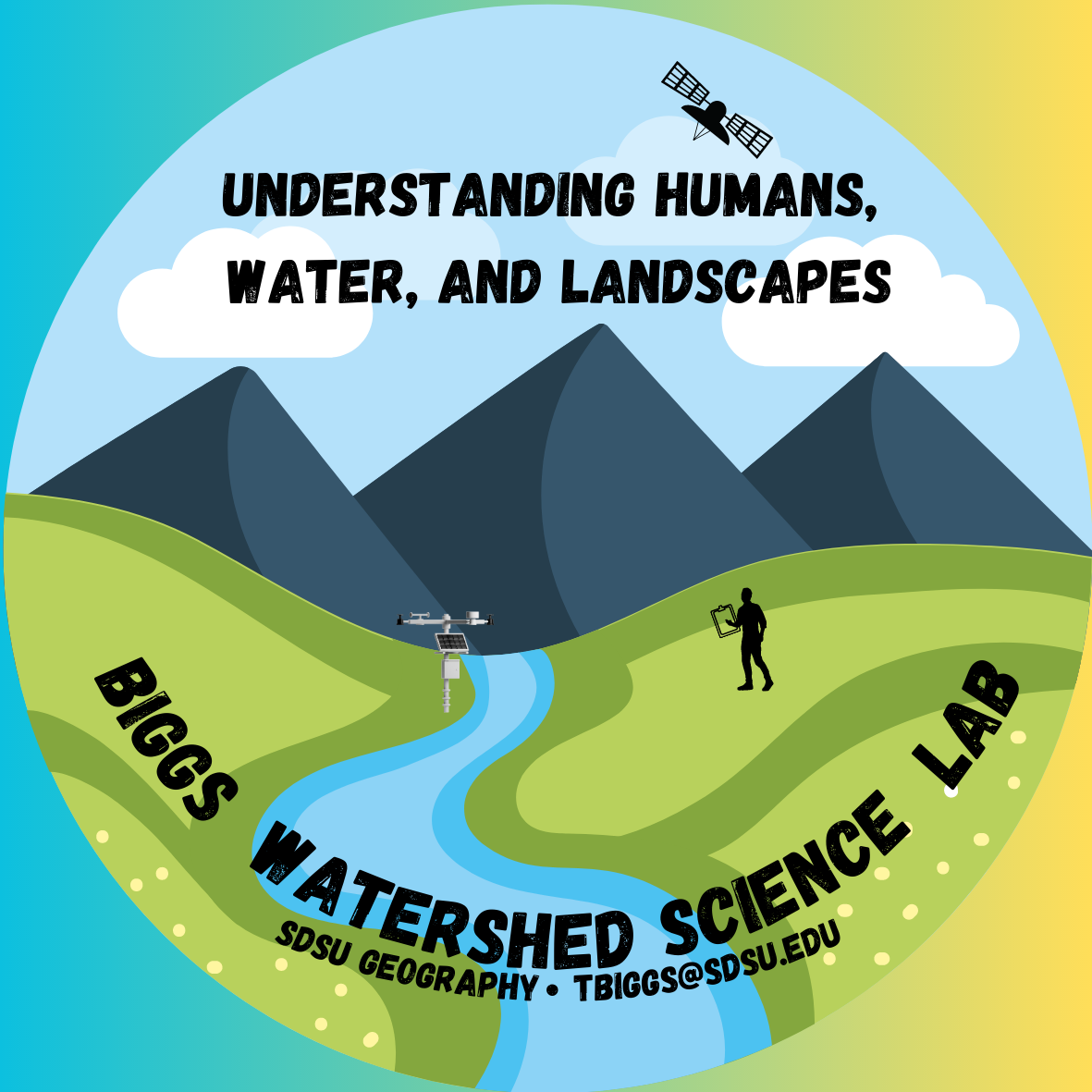I encourage all of my students to use free R software in their research. Below are some resources I find helpful for learning and using R.
The Beginner’s Creed.
R (tutorials, plots, tips and tricks)
Watershed and Hydrological Analysis using QGIS and R
Hidrologia em R e Google Earth Engine, Portugues
Introduction to github (credit Adolfo Lopez Miranda)
Links to data and forecasts
Quantitative Forecast for San Diego County
San Diego River
Tijuana River watershed
OneRain–real-time rainfall and streamflow data for San Diego County
E-lab notebooks and task managers:
These help you keep track of your discoveries, including snippets or screenshots of journal articles, figures, your own results, daily notes, etc.
Evernote: all purpose place to put snapshots of your findings for sharing during lab meetings.
Notion: alternative to OneNote
Reproducible documents:
These software integrate code into reports and theses, so you automatically update numbers and figures, and know exactly what code produced what output in your document.
Jupyter notebooks integrate code into reproducible documents, which you execute on the fly
Rmarkdown is available in Rstudio integrates code with reports, for seamless manuscript preparation. References are a bit challenging, but doable. Can output to MS Word, PDF, or LaTEX.
Field DIY
Other tools and geo-hacks:
Georeferencing Google-Earth PDFs in ArcGIS (credit Justin Bissell)
Avenza field data collection on your phone or tablet. Tutorial credit Justin Bissell
